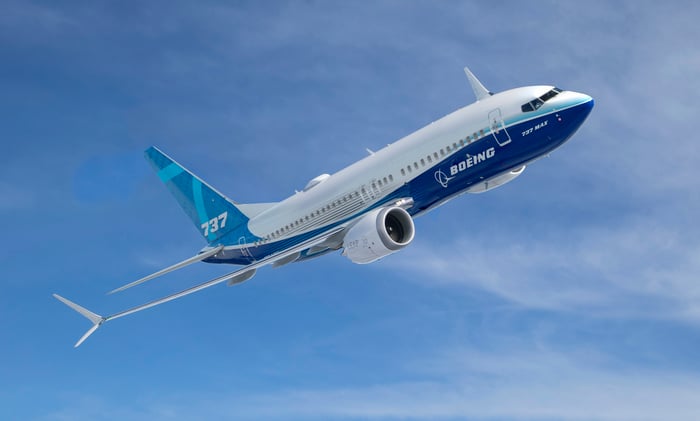A Jefferies analyst recently maintained a buy rating and a $200 price target on Boeing (BA 0.19%) stock, arguing that fears over the impact of potential tariffs on China are exaggerated, given that the country is responsible for only 2% of Boeing's backlog.
What the $200 target implies
While the argument has merit, the price target looks ambitious. The $200 figure (meaning 37% upside) would put Boeing at a market cap of almost $150 billion. The Wall Street analyst consensus is that the company will generate $5.3 billion in free cash flow (FCF) in 2026 and carry $37 billion in net debt in the same year.
A $200 price target implies a price-to-FCF multiple of 28 in 2026.
Is Boeing stock worth $200?
If it hits analyst expectations, you could make a case for Boeing being a good value. A valuation of 28 times FCF in 2026 looks expensive. A snapshot that year could show a company ramping up airplane production and, in turn, profit margins, with the defense business growing earnings as it worked through problematic legacy fixed-price development contracts.
Meanwhile, given that its current backlog is about $500 billion, according to CEO Kelly Ortberg on a recent earnings call, execution is in Boeing's hands.

Image source: Boeing.
But not only is there substantive risk around Boeing meeting its numbers, there's also something else to cut and paste into that 2026 snapshot: the need to develop a new plane for the next cycle of narrow-body aircraft.
The previous CEO said the company would not have a new plane ready before 2035, and it takes years of investment to prepare for that. As such, investors will need to factor in the cash flow requirements for that when they try to imagine that snapshot of 2026.
It's an especially relevant point considering that Asia is the fastest-growing aviation market, and China's Comac aircraft will be more competitive in the next cycle of narrow-body planes.





